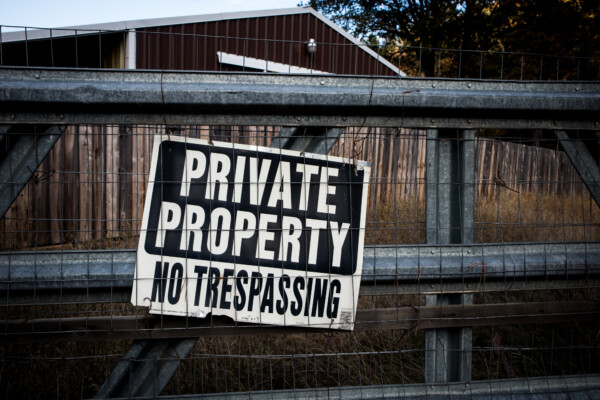Your home and property are some of your most valuable assets. Protecting your investments is so important. With the legal principle known as adverse possession, however, a trespasser or neighbor can acquire portions of your property if you fail to act within a certain amount of time.
Adverse Possession: Defined
Adverse possession, sometimes referred to as squatters rights or squatters laws, is when someone takes possession of an unused piece of real estate, improves it, and then attempts to acquire title on the property. It’s “adverse” because the individual is trying to claim land against the interest of the original titleholder. Adverse possession laws date back to early Britain; the premise was that land should not be neglected or forgotten when someone else would happily care for and improve it. In other words, land should not depreciate when someone else could make it productive.
It’s important to note that adverse possession is different than having an easement. Adverse possession results in a change of title, whereas easements involve shared rights with others in pieces of property (ex: shared diveways or pathways).
Eligibility
For an individual to acquire property under adverse possession, they must meet certain criteria:
- Be in actual, physical possession of the property and make continual improvements to the property
- Be in adverse or non-permitted use of the property
- Using the property in an open, public way
- Continuously and regularly using the property
- Exclusively and solely using the property (the title owner is not using the property)
Under Georgia law, a person may be eligible to start an adverse possession claim if they have been living on the property for 20 years — or seven years with Color of Title. Color of Title is a legal term; it means that the person who has been possessing the property in good faith and has legal documentation to support their ownership. This documentation may include tax payment records or a faulty deed. The individual will likely also have to prove that they’ve cultivated or made improvements to the property in question.
Recourse to Adverse Possession
If you are a landowner or titleholder and you’ve noticed that someone is trying to take up a part of your property without your permission, there are a couple of things you can do to stop adverse possession.
First, you can speak to the individual and ask them to stop entering or trespassing on your property. If they’ve left any personal items or structures, you can ask them to remove those items immediately.
If the trespasser(s) do not leave, you might consider a legal action to evict them. You might also want to bring an action to quiet title, which is a legal method for determining the rightful owner of a piece of property. A quiet title order can also be helpful if the owner wants to sell their property in the future.
Also, if someone files an adverse possession claim on your property, Georgia law recognizes counterclaims such as: being a minor (a legal landowner but not old enough to live by themselves), imprisonment (legal landowner but physically unable to care for property), and mental instability (legal landowner but not mentally able to care for property).
Have Additional Questions? Contact Brian M. Douglas & Associates’ Real Estate Team
If you, or someone you know, is facing a legal dispute related to adverse possession, please contact the experienced real estate attorneys at Brian M. Douglas & Associates. We serve the entire Atlanta area. You can reach us by calling (770) 933-9009 or by visiting our website


